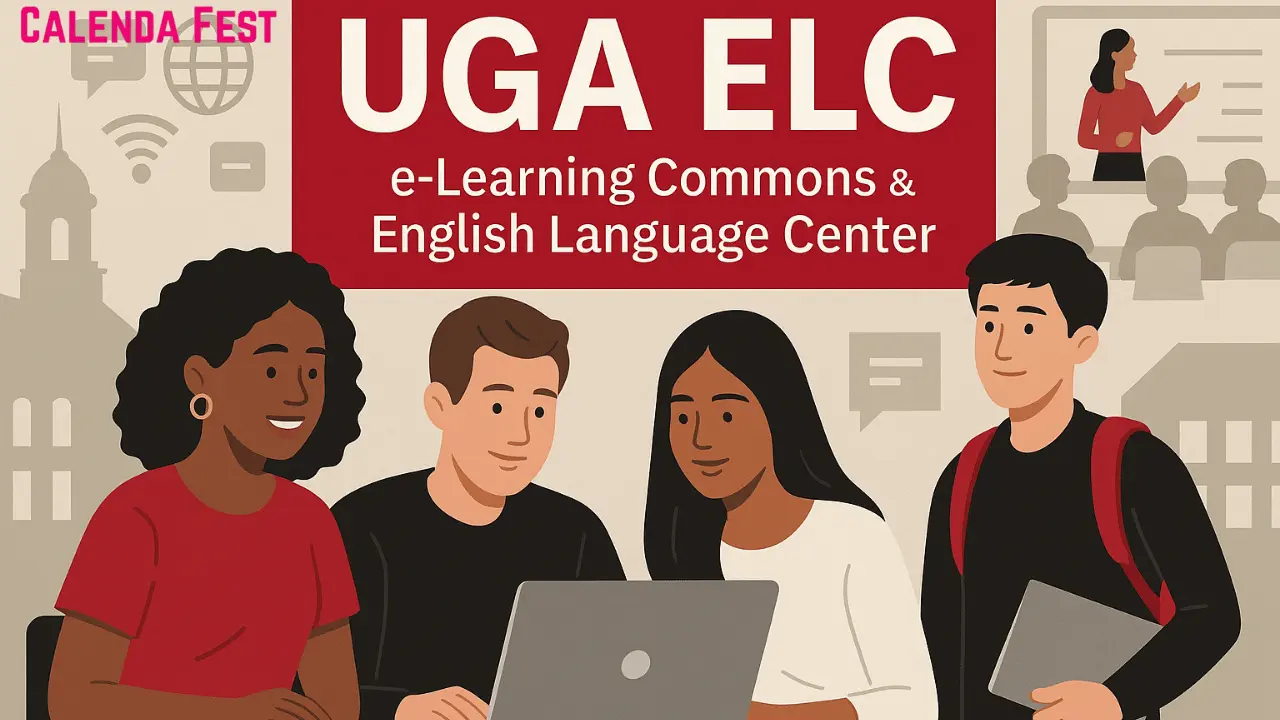Education today is no longer confined to classrooms and lecture halls. Universities across the world are investing in advanced systems and specialized programs to make learning more accessible, supportive, and effective for diverse groups of students. The University of Georgia (UGA) stands out in this regard through its innovative approach that combines technology, academic support, and language instruction. At the heart of this approach is the uga elc, which refers both to the university’s e-Learning Commons platform as well as its English Language Center. Together, they play a vital role in shaping the academic journey of domestic and international students. The e-Learning Commons serves as the digital foundation for hybrid and online courses, while the English Language Center provides language instruction, cultural integration, and preparation for non-native speakers who aspire to succeed in American classrooms. This article explores the functions, benefits, structure, and future of uga elc in detail, offering readers insights into how it helps students thrive in a modern learning environment.
The Role of UGA ELC as a Digital Learning Platform
One of the most significant components of uga elc is the e-Learning Commons, UGA’s official digital learning platform powered by Brightspace by D2L. It provides the infrastructure that allows students and instructors to connect seamlessly through technology. Within this environment, students can access course content, submit assignments, check grades, engage in discussions, and receive updates from their professors. Unlike traditional methods where communication might be limited to class hours, the e-Learning Commons extends the learning experience beyond physical boundaries, ensuring that knowledge is available anytime and anywhere. For instructors, the platform provides tools to organize lessons, design quizzes, monitor student progress, and foster collaboration. The support behind this system is extensive, with the Center for Teaching and Learning offering tutorials, workshops, and technical guidance to both students and faculty. The platform is secure, integrates with UGA’s MyID system for easy login, and reflects the university’s commitment to making education as inclusive and flexible as possible. By using this system, students adapt to the digital-first culture of modern education, equipping themselves with skills that extend far beyond their academic years.
UGA ELC as the English Language Center for International Students
Beyond digital learning, uga elc also refers to the English Language Center, a specialized program designed to support international students, scholars, and professionals. For many, language is the first barrier to achieving academic success in the United States, and the English Language Center provides a structured solution to this challenge. The program offers multiple levels of proficiency training, from beginner to advanced, ensuring that students can progress step by step according to their needs. Courses focus on critical areas such as speaking, listening, reading, writing, and academic grammar, with the aim of preparing students for full participation in university classrooms. Sessions are often organized in eight-week cycles, giving participants the flexibility to enroll in intensive programs or longer academic tracks. What makes this program unique is its emphasis on cultural immersion: students not only learn English but also adapt to life in Athens, Georgia, and to the broader U.S. academic environment. Advisors, housing support, and cultural programs are frequently available to help students transition smoothly. Many graduates of the English Language Center use it as a stepping stone to gain conditional admission into UGA degree programs, showing how the program bridges the gap between language learning and higher education.
Benefits, Challenges, and Student Experience within UGA ELC
The dual structure of uga elc brings significant advantages for the entire university community. Students benefit from having access to high-quality digital tools as well as personalized language instruction. The e-Learning Commons ensures that classes are organized and accessible, while the English Language Center guarantees that international learners are not left behind due to linguistic or cultural barriers. Together, they create a comprehensive environment where education is both inclusive and future-focused. However, challenges remain. For international students, the costs of enrolling in language programs can be high, requiring careful financial planning. The process of adjusting to a new academic culture and learning style can also be demanding. On the digital side, students sometimes face difficulties adapting to online platforms if they are unfamiliar with technology or time management. Yet, these challenges are balanced by strong support systems, including orientation programs, one-on-one advising, help desks, and student workshops. Many success stories highlight how uga elc helped learners improve their confidence, gain communication skills, and integrate effectively into the UGA community. For some, the experience also contributes to long-term career opportunities by improving their English for professional and academic purposes.
Conclusion
In today’s rapidly changing educational landscape, universities must provide more than just traditional instruction. They need to embrace digital learning, cultural diversity, and student-centered approaches that prepare learners for both academic and professional success. The University of Georgia has embraced this responsibility through the uga elc, an integrated system that covers both the e-Learning Commons platform and the English Language Center. Together, these initiatives ensure that every student whether a Georgia native taking online classes or an international scholar learning English receives the resources needed to thrive. The platform simplifies course delivery, while the language center breaks down cultural and linguistic barriers. The benefits are clear: accessible education, improved academic readiness, cultural integration, and long-term personal growth. While challenges such as cost and adaptation exist, the strong support provided by the university makes uga elc a powerful model of modern education. For prospective students and educators alike, understanding this dual system reveals how UGA is building a bridge between tradition and innovation, ensuring that learning remains meaningful, inclusive, and future-ready.
Frequently Asked Question
1. What does uga elc stand for?
It refers both to the University of Georgia’s e-Learning Commons, a digital platform for online and hybrid courses, and to the English Language Center, a program for international students to improve English skills.
2. Who can access the e-Learning Commons at UGA?
All UGA students and faculty can access the platform using their MyID credentials, allowing them to participate in online courses, view grades, and interact with instructors.
3. How is the English Language Center at UGA structured?
The program offers multiple proficiency levels across speaking, listening, reading, writing, and grammar, often organized in eight-week sessions for flexibility and progression.
4. What are the main benefits of uga elc for international students?
It provides language training, cultural immersion, academic readiness, and sometimes conditional pathways to degree programs, helping students transition smoothly into UGA’s academic environment.
5. Are there challenges associated with uga elc?
Yes, challenges include program costs, adapting to new cultural norms, and managing digital learning platforms. However, UGA offers extensive support services to help students succeed.



